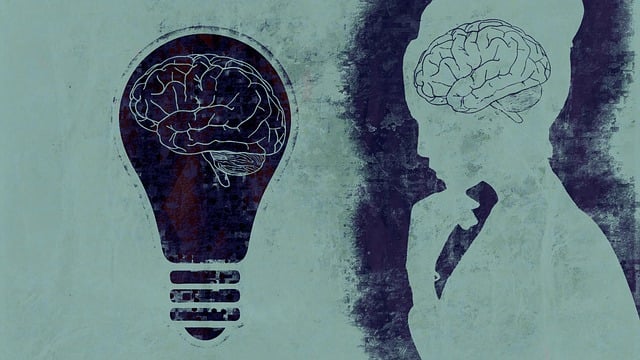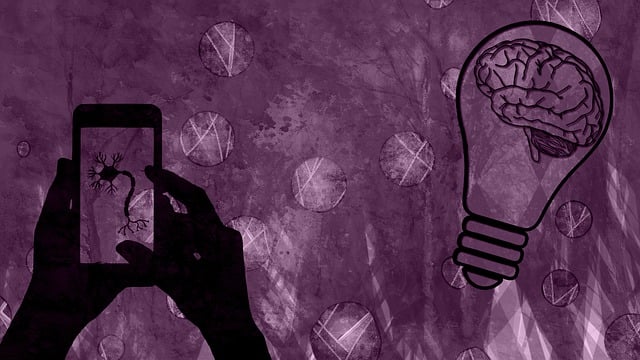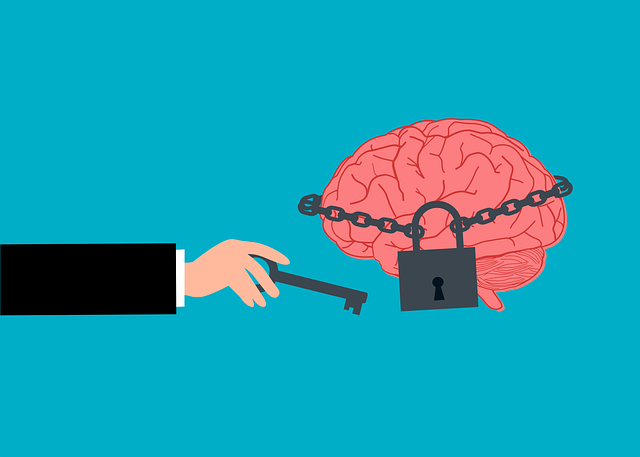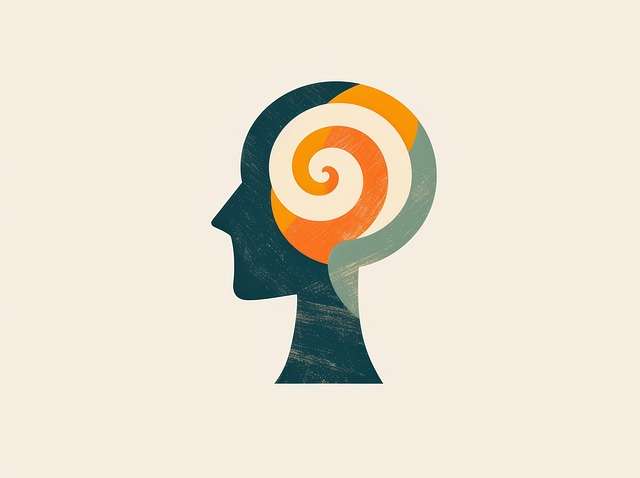TL;DR:
Emotional Intelligence (EI) is a powerful tool for managing chronic pain at Wheat Ridge Chronic Pain Therapy. Patients and healthcare providers benefit from EI through improved communication, stronger relationships, and enhanced pain management. Key aspects include active listening, cultural sensitivity, self-care practices, and techniques like mindfulness and reflecting feelings. Integrating EI into Wheat Ridge's therapy significantly improves patient care and outcomes by fostering deeper understanding of pain and emotional triggers.
Emotional intelligence (EQ) is a powerful tool in managing chronic pain, offering a holistic approach to well-being. This article explores EQ’s profound impact on navigating the challenges of Wheat Ridge Chronic Pain Therapy. We delve into its key components: understanding and identifying emotions, enhancing self-awareness, and developing empathy. By integrating these strategies, individuals can improve their emotional resilience, fostering a more fulfilling life despite chronic pain. Discover practical ways to elevate your EQ and transform your approach to pain management in the context of Wheat Ridge Chronic Pain Therapy.
- Understanding Emotional Intelligence and its Impact on Chronic Pain Management
- Identifying Emotions: The First Step in Building Emotional Intelligence
- Enhancing Self-Awareness: Key to Effective Chronic Pain Therapy
- Developing Empathy: Connecting with Others Through Emotional Intelligence
- Practical Strategies for Integrating Emotional Intelligence into Wheat Ridge Chronic Pain Therapy
Understanding Emotional Intelligence and its Impact on Chronic Pain Management

Emotional intelligence (EI) is a powerful tool in managing chronic pain, as it helps individuals recognize and understand their emotions, and those of others. In the context of Wheat Ridge Chronic Pain Therapy, EI plays a pivotal role in enhancing patient care. By developing emotional intelligence, patients can better cope with the challenges that come with living with chronic pain. This involves recognizing triggers, managing stress, and understanding the connection between emotions and physical sensations.
The impact of EI extends beyond individual coping mechanisms. For healthcare providers, particularly those involved in crisis intervention guidance, emotional healing processes, and burnout prevention strategies, cultivating high EI is essential. It enables them to offer more empathetic and effective support to patients dealing with chronic pain. Through enhanced EI skills, healthcare providers can improve communication, build stronger patient-provider relationships, and ultimately contribute to better outcomes in pain management.
Identifying Emotions: The First Step in Building Emotional Intelligence

Identifying Emotions: The Foundation of Emotional Intelligence
The journey to building emotional intelligence begins with a fundamental step: recognizing and identifying emotions. This initial process is akin to unlocking a secret code, allowing individuals to understand their own internal landscape. By learning to identify emotions, one can start to navigate the intricate web of feelings with greater clarity. It’s a crucial skill that forms the bedrock for effective communication and meaningful connections, both personally and professionally.
In the context of Wheat Ridge Chronic Pain Therapy, this step is particularly significant. Patients often struggle with managing their emotional responses to chronic pain, which can impact their overall well-being. Developing emotional intelligence helps individuals label and understand these feelings, leading to more proactive coping strategies. Moreover, cultural sensitivity in mental healthcare practice plays a vital role here, ensuring that therapeutic approaches are adaptable and inclusive for diverse patient populations. Stress reduction methods, when integrated with emotion identification, can empower individuals to foster resilience and enhance their overall mental health policy analysis and advocacy efforts.
Enhancing Self-Awareness: Key to Effective Chronic Pain Therapy

In the realm of Wheat Ridge chronic pain therapy, enhancing self-awareness stands as a cornerstone for effective treatment. This involves deeply understanding one’s emotions, triggers, and coping mechanisms. By increasing self-awareness, individuals can better navigate the complexities of living with chronic pain, fostering resilience building that goes beyond mere physical endurance. Mental health education programs design tailored interventions to empower patients, teaching them to recognize and manage their emotional responses in a way that promotes healthier communication strategies within themselves and their support networks.
Effective Wheat Ridge chronic pain therapy leverages self-awareness to equip individuals with the tools needed to advocate for their needs. Through improved understanding of their emotional landscapes, patients can engage more meaningfully in conversations about their care, enhancing both the quality and effectiveness of treatment plans. Communication strategies, honed through this increased self-awareness, allow patients to express their experiences accurately, ensuring that healthcare providers are well-informed and better able to offer compassionate, tailored support.
Developing Empathy: Connecting with Others Through Emotional Intelligence

Developing empathy is a cornerstone of emotional intelligence and plays a pivotal role in connecting with others on a deeper level. This skill goes beyond simply understanding emotions; it involves cultivating a genuine interest in another person’s experiences, feelings, and perspectives. At Wheat Ridge Chronic Pain Therapy, we emphasize the importance of empathy in our approach to mental healthcare. By practicing active listening and attempting to see situations from others’ viewpoints, individuals can build stronger relationships and foster an environment of support and trust.
In a diverse society like ours, cultural sensitivity in mental healthcare practice is also crucial for effective communication. Empathy allows us to recognize and appreciate the unique backgrounds, beliefs, and values that shape our interactions. Incorporating self-care practices into one’s routine can further enhance emotional intelligence by promoting personal growth, resilience, and a deeper understanding of one’s emotions—all of which contribute to better connections with others in various aspects of life, including Wheat Ridge Chronic Pain Therapy settings.
Practical Strategies for Integrating Emotional Intelligence into Wheat Ridge Chronic Pain Therapy

Integrating emotional intelligence (EI) into Wheat Ridge Chronic Pain Therapy is a powerful approach to enhancing patient care and outcomes. EI involves recognizing, understanding, and managing one’s own emotions, as well as responding empathetically to others. For healthcare professionals in Wheat Ridge Chronic Pain Therapy, this means cultivating skills in active listening, non-verbal communication, and empathy, which are essential components of effective therapy sessions.
Practical strategies include incorporating mindfulness techniques to help both patients and therapists stay present and regulate emotions during sessions. Encouraging open dialogue about emotional experiences can foster a deeper understanding of pain triggers and coping mechanisms. Additionally, training in risk management planning for mental health professionals ensures that therapists are equipped to handle complex emotional situations sensitively and effectively. Effective communication strategies, such as reflecting feelings back to patients and normalizing their emotional responses, can create a safe space for vulnerability and promote positive mental wellness outcomes.
Emotional intelligence is a powerful tool in navigating the complexities of Wheat Ridge Chronic Pain Therapy. By understanding and managing emotions, individuals can significantly improve their ability to cope with pain. Through identifying and expressing feelings, enhancing self-awareness, and developing empathy, patients can foster a supportive environment for their healing journey. Integrating these emotional intelligence strategies into treatment plans empowers folks to take control, find clarity, and experience a deeper sense of connection during their chronic pain management process.














